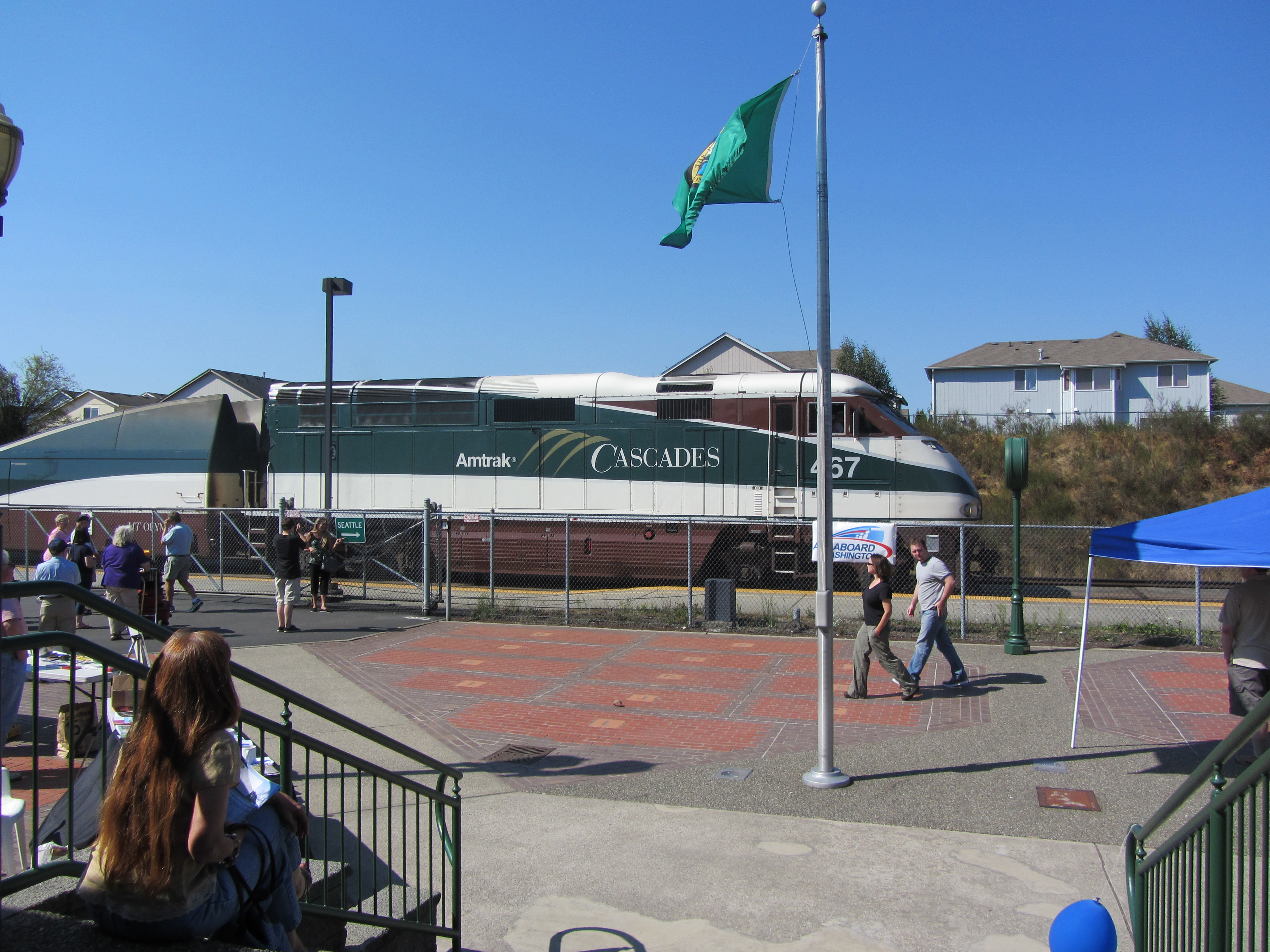July 21, 2021
AAWA Submits Comments to USDOT on Transportation Equity
From All Aboard Washington's comments to the US Department of Transportation:
Our surface transportation program has focused on vehicles, vehicle speed, and through traffic for far too long. That emphasis minimizes the needs of those who cannot afford a vehicle, cannot drive, or choose not to drive. The focus on vehicle speed, with associated travel time savings, imposes safety risks to those traveling within the community on foot, wheelchair, mobility scooter, bike, rail, or other means of transportation. Additionally, the focus on vehicle speed and travel time saved instead of people - the community’s most valuable asset - imposes barriers to both economic opportunities and achieving transportation equity. More often than not, the current transportation program has left in its wake marginalized, historically underserved, and excluded communities.
The comments are similar to those from Transportation for America, and have been submitted in collaboration with the Disability Mobility Initiative of Disability Rights Washington.
The full comments follow.
*****
July 21, 2021
Docket Management Facility
United States Department of Transportation
1200 New Jersey Avenue SE
West Building Ground Floor, Room W12-140
Washington, DC 20590-0001
Re: Docket No. DOT–OST–2021–0056
To whom it may concern:
Thank you for the opportunity to provide feedback on this docket, pertaining to a Request for Information on Transportation Equity Data. This conversation is critical to recognize, identify, mitigate, and recalibrate historic exclusionary practices in the U.S. transportation program.
We understand that the docket requests feedback on specific questions. However, we must highlight overarching feedback on the topic of equity in the transportation system. The Department can make significant headway by viewing and applying its mission holistically toward equity and inclusion.
Equity is a concept that cannot be layered onto the current state of the transportation practice. Decision makers across the spectrum of government (from local, regional, state, and federal) implementing the transportation program have viewed and interpreted equity and environmental justice as just an additional step in the planning, implementation, and operation process. More often than not, any mention or measures of equity and environmental justice in the transportation planning process has been documented in a separate chapter, rather than incorporated throughout the process dialogue. As a result, we have made insignificant progress toward addressing equity and inclusion.
Our surface transportation program has focused on vehicles, vehicle speed, and through traffic for far too long. That emphasis minimizes the needs of those who cannot afford a vehicle, cannot drive, or choose not to drive. The focus on vehicle speed, with associated travel time savings, imposes safety risks to those traveling within the community on foot, wheelchair, mobility scooter, bike, rail, or other means of transportation. Additionally, the focus on vehicle speed and travel time saved instead of people - the community’s most valuable asset - imposes barriers to both economic opportunities and achieving transportation equity. More often than not, the current transportation program has left in its wake marginalized, historically underserved, and excluded communities.
Realizing true benefits equitably for all users of the transportation system will require a fundamental adjustment to current Department policies, procedures, and practices. From purpose and needs statements, scoping guidance, design measures and standards, project prioritization, to performance indicators, there needs to be a focus on the people’s needs underpinning the transportation program. We want to emphasize that none of these steps require either authorization from Congress or rule-making action. They simply require the Department to revise its own policies and guidance material.
All Aboard Washington is a 501(c)(3) nonprofit passenger rail advocacy organization. We champion safe, reliable, frequent, competitive, and convenient passenger rail services that meet the needs of everyone in Washington state. We are especially supportive of intercity passenger rail service, intermodal transit connections, and accessible infrastructure for active transportation.
The Disability Mobility Initiative is a program of Disability Rights Washington. Our mission is to advance the dignity, equality, and self-determination of people with disabilities. We believe every community should have reliable, accessible transit and the infrastructure we need to safely roll, walk and wheel on our streets, and that every one of us should be able to move in our communities without fear of harassment or police violence.
We look forward to engaging in the conversation with your team in order to advance the state of the transportation planning practices to holistically integrate equity and inclusion. Thank you for your consideration of this feedback.
Sincerely,
Gary Wirt
Vice-President
All Aboard Washington
Anna Zivarts
Director, Disability Mobility Initiative
Disability Rights Washington
